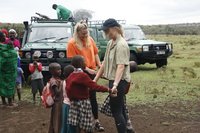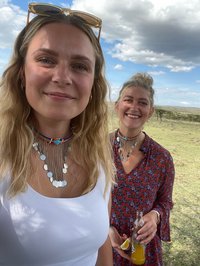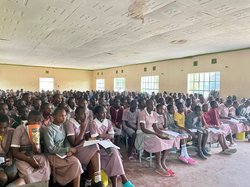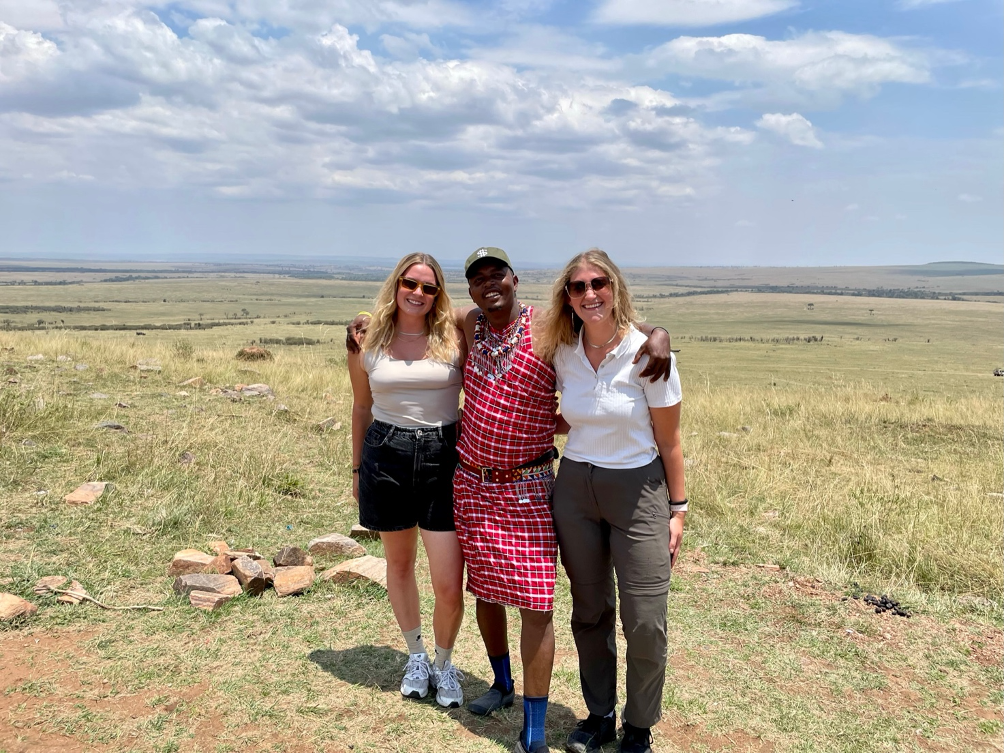2022: Sexual and reproductive health rights services in the Maasai Mara
Human Security master student Karoline Kvist and Political Science master student Tenna Axelsen from Aarhus University are currently in the Maasai Mara to collect data on their projects.
The two individual studies aim to explore information distribution and uptake of sexual reproductive health (SRH) services in Maasai Mara, Kenya. In particular, how the Maasai understand and utilise contraceptive methods, otherwise known as family planning. The projects are conducted in collaboration with a local NGO, The Maa Trust (TMT).


A 2016 study done by TMT, revealed that the Mara region has a birth rate of 90.8 per 1000 population, which is 3.2 times greater than the average birth rate of 28.3 per 1000 population in Kenya. This increase in population size poses a looming threat to the famous Maasai Mara ecosystem, and emphasising family planning has therefore become crucial to address environmental, human-wildlife and socio-economic challenges faced in the Mara. Moreover, globally, Kenya ranks third highest in the number of teenage pregnancies, with one in five adolescent females already being mothers or pregnant at ages 15-19. In Narok County, which is the study site of both projects, 40% of early pregnancies are recorded for girls aged 10-14 compared to 18% on a national scale. The high numbers of teenage pregnancies stem from unprotected sex, which is furthermore connected to an ongoing increase in sexually transmitted diseases, including HIV/AIDS.
Accordingly, it is imperative to examine the various elements that impact current family planning knowledge, attitudes and practices for the Maasai, in order to inform TMTs programme design so as to enhance effectiveness and impact.

Both projects seek to examine the various elements that impact current family planning practices for the Maasai. The studies will apply a mixed methods research approach, by collecting and analysing both quantitative and qualitative data. The data collection process will be conducted in cooperation with TMT.
One study focuses on knowledge and information gaps as a contributing factor to low levels of family planning uptake for this tribe and the repercussions that follow. The other study focuses on socio-economic as well as cultural factors that influence why individuals and couples do not utilise family planning, even when they are informed and have access to SRH services.
Currently, little research has been done on family planning in Maasai Mara, and both projects will therefore address an academic gap as well as informing TMT’s Integrated Community Healthcare Project.
Supervisor to Karoline: Associate Professor Nina Holm Vohnsen, School of Culture and Society - Department of Anthropology, Aarhus University
https://pure.au.dk/portal/da/persons/nina-holm-vohnsen(eb4255ad-9e7e-42e3-be78-792c8fc8ecbd).html.
Co-supervisor is Professor Tammary Esho, AMREF International University in Nairobi, Kenya. https://www.linkedin.com/in/prof-dr-tammary-esho-9827915a/
